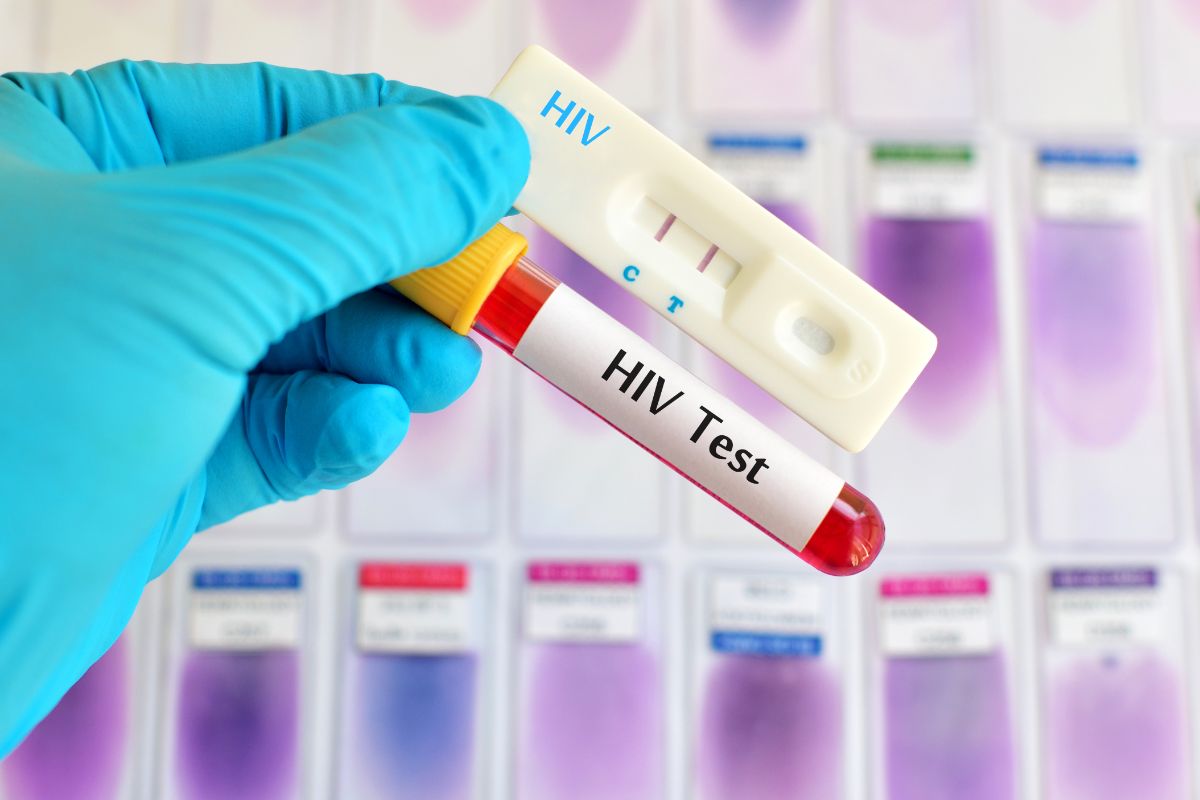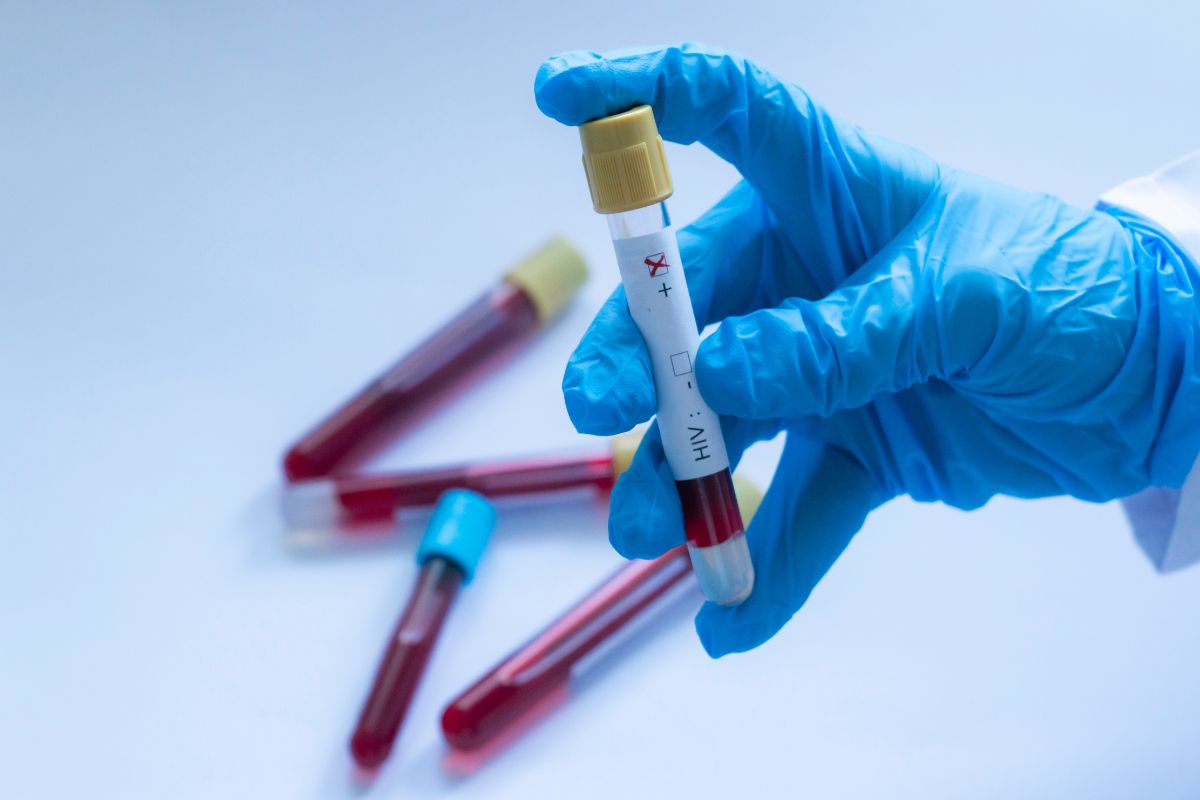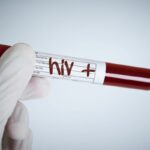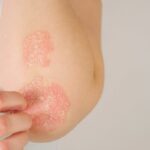The human immunodeficiency virus, or HIV, is a sexually transmitted infection that can lead to AIDS if left untreated. HIV can be avoided if the correct procedures are taken.
However, sometimes mistakes can be made. By having unprotected intercourse with someone who has been diagnosed with HIV, you put yourself at risk of receiving the virus yourself.

In this article, we will look at how you can get tested for HIV after having unprotected sex, and how soon you can get tested.
Contraception To Be Used To Prevent HIV
While most forms of contraception are used primarily to prevent pregnancies, there is one form that can be used to prevent STDs, such as HIV: the condom.
Condoms (see also ‘Do Condoms Always Prevent HIV Transmission?‘) prevent biological fluids, such as semen, pre-ejaculate, and vaginal fluid, from entering either party during sexual acts.
HIV can be transmitted by any of the above described bodily fluids.
It is so important that you use a condom while having sex with someone if you are unsure of their sexual history.
Can You Still Catch HIV While Using A Condom?
Unfortunately, condoms are only, roughly, 85% effective.
When combined with other kinds of contraception, the effectiveness rises to 98% if used appropriately (at least, when preventing pregnancies).
However, no matter how careful you are, there is always the possibility of the condom splitting during sexual activity.
A condom must be used accurately to have the best results, but even if this is achieved, there is still, at the very least, a 2% possibility that it will fail.
How Soon Can You Test For HIV After Unprotected Sex?
Unfortunately, no test exists that can effectively detect HIV in the body immediately following exposure. Before a person can obtain accurate results, there is a ‘window period’ that must be waited out.
A window period is the time in which HIV can be initially detected.
This is usually somewhere between 10 days following the suspected exposure, and 90 days.
This means that, if a person were to get tested before the window period, they may receive a negative test result when they have actually caught the virus.
To be as sure as possible, a person must get tested again once the window period has passed, regardless of the sort of test used after probable HIV exposure.
What HIV Tests Are Available?
Nuclear Acid Tests (10-33 Days Following Potential HIV Exposure)
A nucleic acid test (NAT) can determine how much virus is present in a blood sample.
A health practitioner will only recommend and administer this test if they believe a person has been exposed to HIV, or if the findings of a screening test were inconclusive.
NATs are one of the most expensive tests that a person can take to identify HIV.
However, this is one of the tests that can be done the soonest after potential exposure; a positive result can get picked up around 10 to 33 days following probable HIV contact.
4th Generation HIV Tests (18-90 Days Following Potential HIV Exposure)
4th generation tests are sometimes called rapid antigen tests, or rapid antibody tests (although they are different to the rapid antibody tests that we will be talking about later in this article).
This test analyses antibodies, as well as levels of the p24 antigen, which can be identified as early as 18 days after potential exposure to HIV.
Antibodies can be picked up between 18 and 90 days, in most cases.
However, in the early stages of HIV infection, this test has been known to yield false negatives.
A healthcare provider would likely prescribe a second test 1-2 weeks later if a person initially tests negative, just to be 100% certain.

Rapid Antibody Tests (23-90 Days Following Potential HIV Exposure)
Taking a rapid antibody test is one of the fastest ways to discover if you have HIV, although it can sometimes take up to 90 days for the specific antibodies needed to show up in your system.
These tests reveal their results within 30 minutes, which is why they are called ‘rapid’ antibody tests.
A negative result will, most likely, be accurate if this test was taken four weeks or more after exposure.
However, it is still a good idea to test again in three months to be sure.
It is estimated that 97 percent of persons will have the sufficient amount of antibodies for a reliable test result after around 3 months (90 days).
Home Testing Kits (90 Days Following Potential HIV Exposure)
Home testing kits are probably the most easily accessible tests a person can get.
They get sent to your home, and you can take them yourself before sending them away to get tested.
The home testing kit includes an oral swab, a container to hold a urine sample, or a small mechanism used to draw blood from your finger.
People can either extract their sample and send it off to a laboratory, or send the test kit to a lab and have the procedure administered there, based on the type of testing.
While it is said that the most accurate results can be obtained 90 days following the potential exposure, it has also been said that these tests can detect HIV within 9 to 11 days following.
Acting Immediately Against HIV
When a person suspects they’ve been exposed to HIV, they should see a healthcare practitioner within 72 hours of being potentially exposed.
A healthcare provider can prescribe postexposure prophylaxis (PEP), an antiretroviral treatment that can reduce the risk of catching HIV by up to 80%. PEP will need to be taken for 28 days for full effect to be taken.
It is so important to ensure that you see a doctor within 72 hours of potentially being exposed to HIV. The sooner you see a professional, the more likely you will be able to avoid catching the virus.
Final Thoughts
Generally speaking, you should wait 90 days before getting an HIV test. You can test beforehand, but your results may not be accurate, and you will need to take a second test later on to confirm the results in any case.
If you believe you have been exposed to HIV, your best option is to visit a doctor or health professional and ask to be prescribed PEP immediately.
We hope you found this article useful.
- Understanding Male Reproductive Health: A Complete Guide - February 2, 2025
- Simple Healthy Skin Habits for Radiant Skin - December 6, 2024
- Unlocking the Connection Between Nutrition and Mental Health - December 3, 2024

![When Is A HIV Test Conclusive? Everything That You Need To Know When Is A HIV Test Conclusive? [Everything That You Need To Know]](https://alphanutrition.com/wp-content/uploads/2022/08/When-Is-A-HIV-Test-Conclusive-Everything-That-You-Need-To-Know-150x150.jpg)

![Prenatal HIV Transmission What Is Perinatal Hiv And When Does It Occur? [Explained]](https://alphanutrition.com/wp-content/uploads/2022/08/What-Is-Perinatal-Hiv-And-When-Does-It-Occur-Explained-150x150.jpg)




